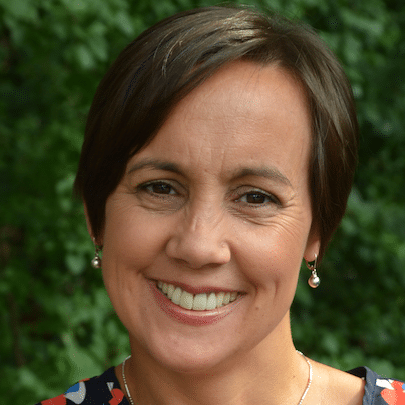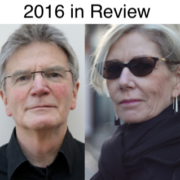Some thirty-five percent of out-of-school children live in conflict-affected areas. These emergency situations include both human conflicts, such as, war and natural disasters, such as earthquakes. These children are in desperate need of help. Yet before anyone can act, information is critical. Information and data on education in emergencies is, however, inadequate in most cases.
My guest today is Mary Mendenhall, an Associate Professor of Practice and the Director of the International and Comparative Education program at Teachers College, Columbia University. She is a member of the Inter-agency Network for Education in Emergencies’ (INEE) Standards and Practice Working Group and has edited a new NORRAG special issue on data collection and evidence building to support education in emergencies.
Citation: Mendenhall, Mary, interview with Will Brehm, FreshEd, 158, podcast audio, June 10, 2019. https://www.freshedpodcast.com/marymendenhall/
Transcript, Translation, and Resources:
Will Brehm 1:34
Mary Mendenhall. Welcome to FreshEd.
Mary Mendenhall 1:36
Hi, Will. Thanks for having me.
Will Brehm 1:38
So, I want to start with a rather broad question today, just sort of setting the stage, of: what is in fact, education in emergencies? How would we even begin to conceptualize that rather broad field?
Mary Mendenhall 1:52
Yes, and it is a broad field. So, I’ll try to give a clear answer. But it’s really thinking about all of the people, children, youth, adults who might be affected by different types of crises. And when I say different types of crises, I’m thinking about, you know, forced displacement, armed conflict. I’m thinking about natural disasters and I’m also thinking about epidemics like Ebola. And thinking about who’s then displaced from schooling, who needs to get back into school? How do we make that happen? And how do we work with the various partners like national governments, and donors, and implementing organizations to actually make that happen as we try to uphold the right to education regardless of the context that these people might find themselves in?
Will Brehm 2:42
And so, is this a global phenomenon? Around the world in all different countries in different ways we see various types of education in emergencies.
Mary Mendenhall 2:50
Yeah, we really can. I think if you take a broad and inclusive definition, you know, you could certainly look at places within the United States that are suffering from challenges and crises that are preventing kids from going to school, are preventing kids from getting access to a quality education. And certainly, we’ve seen natural disasters further complicating that. So, I think you can find different ways that manifests in different countries around the world. But certainly, as we’re looking at global levels of displacement, both in terms of refugees crossing borders and internally displaced persons, of which there are even more that we don’t talk about as much- it certainly is a global phenomenon.
Will Brehm 3:29
And I would imagine things like war contribute to this greatly.
Mary Mendenhall 3:33
Absolutely, yeah. Wars between countries, internally, internal wars, or internal kind of fighting factions, that lead to conflict and violence. All of those things are going to complicate and perpetuate what’s happening in terms of education in emergencies.
Will Brehm 3:49
So, when thinking about education in emergencies, what sort of data is even available? I would imagine it must be incredibly difficult to even get a sense of what’s going on in a place that’s flood prone or a tornado just struck or an epidemic just happened, or massive movements of people are coming through, or war has struck. What sort of data is even available about those different contexts?
Mary Mendenhall 4:12
Yeah, it’s a great question. And being difficult is an understatement, probably. You know. So, when we think about the field of education in emergencies, it’s still a relatively young field. It really kind of came together in the early 2000s. And so, it’s expanded significantly but the overall kind of state of available data and quality data on education emergencies is really slim. And the availability and quality of that data also changes significantly depending on what we’re talking about. So, for example, you know, we might have better data about refugees living in refugee camps because you would have mostly United Nations and other actors kind of being responsible for them. And it’s kind of a bounded context and easier to kind of collect data. But then you would have less information about refugees in urban settings because they’re more dispersed and hard to find. You’d have even less data for internally displaced persons because national governments might not be willing to share that information. It will depend, like you said, is it an armed conflict? Is it a natural disaster? You know, what’s caused it? And what was the state of the data systems before the crisis? Was there data that existed? Or is it all kind of coming together post crisis? Or again, maybe there’s some great stuff to draw on, you know, before a war broke out, or an epidemic took place. And then it gets even more complicated because we’re not just talking about formal education. We’re also talking about non-formal education. And so within non-formal, we probably have even less data compared to formal education systems just given, you know, the lack of maybe schools or teachers or kind of responsible parties, working in all those spaces. So, it’s quite challenging.
Will Brehm 5:59
Oh my gosh, it sure sounds like it. I wouldn’t even know where you really begin with that. Who is involved with even trying to gather some of this data?
Mary Mendenhall 6:09
Yes. I think there are different levels that you need to think about. At the local level, whether it’s district education offices, or some of the stakeholders working in those spaces, you know, they’re going to be collecting data, that is probably kind of the most accurate, right? Because they’re the closest to the field, so to speak, and they’re able to access the populations that are affected by crisis. But you might have a number of different actors collecting data for different reasons in those spaces. Then you kind of go up a level to the national systems. And again, depending on the state of the national context in the national government, you know, are those stakeholders able to collect data, have they already been doing that? Do they have kind of the capacity building to house the data and analyze the data? And then you go up another notch if you kind of jump to the global level, you think about UNESCO Institute for Statistics, or the Global Education Monitoring report teams. But there are real challenges there. And so, for example, in the NORRAG special issue, two co-authors, Montjourides and Liu actually talked about the challenges at the global level. And they pointed out -and Montjourides in particular used to work for the UNESCO Institute of Statistics so really had an insider’s perspective about those challenges. And talked about just the unavailability of global figures about education for forcibly displaced children. And then if you look at what’s available for that population, compared to the, you know, I think 40 plus indicators that we’re collecting for the Sustainable Development Goals, you know, it’s a far cry, a far distance between the two. And then even like the UNHCR, the UN refugee agency, you know, they also only cite a few global statistics, broadly speaking about enrollments and kind of the rates of out of school children, but very little about actual learning, early childhood, gender, or teachers, for example, and that was captured in this first article in the special issue.
Will Brehm 8:20
So, this may sound like a stupid question, but why is it even important to have such data in these locations?
Mary Mendenhall 8:27
Yeah, that’s a good question. I mean, it’s really critical to have good data for, I think, a number of reasons. I mean, first and foremost, you know, we have limited funding for education in emergencies. It’s one of the least funded sectors within humanitarian aid. And so, data, good data, reliable data, helps us determine who needs the aid -who needs education assistance- the most. And then I think when you have good data, you’re able to make, you know, evidence informed decisions about what should be funded amidst those limited resources. How you would design the scope and the reach of education programs, what kind of advocacy and policy work, you know what kinds of shifts in those areas you’d like to see, as we try to, again, uphold the right to education for students and better support teachers and families who might be affected by different types of crises?
Will Brehm 9:22
Is there any example of where such data was collected, you know, in a way that we could point to a saying, Wow, that was a really good example of how data should be collected in emergency?
Mary Mendenhall 9:33
Yeah, that’s a really tough question to answer as well. I think I was even reflecting on how I would answer that and even reached out to a few colleagues and they were like, “Hmm, I’m scratching my head a little bit”. So, I think it’s hard. I think there’s a lot of promising development in that area right now. And there is, in particular when we think about the refugee context, there’s a real push towards inclusion of refugees into national education systems. So, to do that, and to make sure the various stakeholders are kind of fully understanding the ramifications of that, you obviously have to have better data about how many students, how many refugee students we’re talking about, and also how many host community students we’re talking about, and absorption capacity in schools and numbers of teachers. And so, where we see some promising developments, you know, I might cite the case of Lebanon, particularly in the response to the Syrian crisis. Kenya might be another example where they’re really trying to push some work on a national education management information system that includes refugees. So that’s not common practice in most countries but those are some promising developments in that area.
Will Brehm 10:43
So, you know, these education management information systems are a common feature in a lot of ministries and certainly pushed by development partners like the World Bank. In education in emergencies, is there data that needs to be collected that is different from what these education management information systems typically collect in just a non-emergency situation.
Mary Mendenhall 11:05
Yeah, I think most of the data that you would collect is very similar. But there are probably some differences. So, you know, it’s probably important to know how long people have been displaced, how much schooling they had prior to displacement. And if they’ve been out of school for an extended period of time, because of the crisis -potentially years of displacement- then what does that mean in terms of where they can kind of pick back up and start again in a new education system in a country of asylum? And so, I think some of those data points would be different.
Will Brehm 11:43
A lot of this seems like descriptive statistics, this quantitative sort of collection of data. Are there any qualitative studies of education in emergencies that are useful, or could be useful for either policy-makers or aid workers, or just researchers in general?
Mary Mendenhall 12:03
Yes, I mean, I think it’s important to have both. There’s certainly an emphasis on quantitative data. And like you said, descriptive statistics and kind of knowing, you know, how many people are we talking about. And to the degree, we can get a disaggregated data, you know, children and youth versus adults versus elderly, you know, girls versus boys, people with disabilities, etc. So, it’s important to understand that, but I think the qualitative data is equally important and collected in these contexts. And so, it’s important, especially as we start providing education programming, to understand how that’s working, how students and teachers are experiencing the education program. And that’s important to collect. And I think there’s another great article in this special issue that Diana Rodriguez-Gomez wrote about her work with Colombian refugees in Ecuador and hers was a bit of, you know, the importance of doing qualitative research but also how careful we need to be in the terms that we use and how we apply those terms or concepts, and the assumptions we might be making as external researchers. And I mean, those same cautionary tales apply for quantitative data. Everything can be misused or misinterpreted so we have to be very cautious about that. But the quantitative and qualitative and mixed methods approaches are very important for education emergencies, I think, to get a holistic and comprehensive perspective about what’s happening in these spaces.
Will Brehm 13:35
So, what are some of these terms that we should be careful about?
Mary Mendenhall 13:40
Yeah, so I mean, in that particular article, it was sensitive to talk about like the guerillas in terms of guerrilla warfare. Certainly, in other contexts, you know, not in this article, but in other contexts, you know, thinking about words like, you know, terrorism. You know, I think there’s some flashpoints that can come up in the way we’re talking about these things. It also could be something where, you know, globally, we very much agree that, you know, by the legal definition this population is a group of refugees, but the country that’s, you know, hosting those refugees might not want to call them that or identify them as that. And so sometimes we’ll use, you know, other examples, like “people of concern”, to make sure that it’s a little bit more palatable to those national governments. So, it’s really important to understand the national context you’re working in and to make some of those adjustments as needed.
Will Brehm 14:37
But by using words that certain governments want to hear, doesn’t that somehow also take them off the hook of supporting these displaced people’s?
Mary Mendenhall 14:49
I would totally agree with you. But I think the politics come into this discussion pretty fast. You know, another word that’s often talked about is, you know, we’re thinking about refugees who are displaced in a protracted prices for upwards of 20 years, but we’re not supposed to say that they’re quote unquote, integrated into the national system, but we’re allowed to say they’re included. You know, for me, I’m like, really? What is the difference? You know, it’s a pretty minor distinction. But -so I agree with you, it lets them off the hook- but if it kind of barters a little bit of mutual respect or willingness to meet halfway or a better disposition to actually help the refugees or displaced people in that country, then it’s worth it, I would say.
Will Brehm 15:37
And so, this sort of politics is being played by national level government officials, but also researchers and development partners? Is that who’s playing you know, who has to navigate the tricky choice of words, which is a political decision?
Mary Mendenhall 15:55
Yeah, I mean, I think everybody has to, depending on the context, depending on the agenda. I mean, all of us have an agenda even if it’s kind of a more independent, you know, I won’t say neutral because research isn’t neutral, but a more independent approach to doing research. So, I think even academics and researchers have to be mindful of that. And you know, Diana Rodriguez-Gomez pointed that out I think really poignantly in her article.
Will Brehm 16:21
Is there a particular sector of education (non-formal, formal, K-12, higher education) that is, you know, sort of the favorite for researchers and development partners and national governments to focus on when it comes to education in emergencies? Like, is there a bias towards a particular type of education?
Mary Mendenhall 16:42
Yeah, I think there’s, you know, always been a bias to a certain extent. Certainly, the Sustainable Development Goals and other initiatives have really pushed, again, a broader and more inclusive look at lifelong learning from early childhood and beyond up through the educational kind of pipeline and into adult learning. Again, I think because of the limited funds available for education in emergencies, you know, historically and still present-day, the bigger focus in everything -policies, programs, research- tends to be on basic education. So primary, you know, to even just lower-secondary is still where the emphasis is, but there is kind of traction and more attention, particularly around early childhood in crisis affected context, and secondary to some extent. And then certainly tertiary is getting a little more attention. You know, there’s like, 1% of all refugees, for example, who are accessing universities. And that’s a pretty, you know, daunting statistic, but important to think about what’s happening there. And Eddie Dutton actually in one of the articles in the special issue, I think he paints a pretty nice picture of what’s happening at the tertiary level, and what types of information different stakeholders need. But even at that level, it’s a lot about just kind of access and then scholarships. How can we help people pay to get a college or university education? So again, yes, the emphasis would be on basic education and formal education. And everything else is a little bit secondary, though different, you know, actors and donors might prioritize it in different ways.
Will Brehm 18:26
In your opinion, what area of education would you like to see more research on, more data collected in terms of education in emergencies?
Mary Mendenhall 18:34
You know, it’s still such a new field and the evidence base is so thin. So, we really need evidence across different types of programs, different types of populations, different types of national contexts. So, I think it’d be really hard to prioritize that. I do notice a strong bent by non-governmental organizations and the donors that are funding them to really hone in on the effectiveness of their programming and value for money and cost-benefit analyses. And I think that’s really important, of course. But I think if we overcorrect and only look at that we’re missing all the other ways that some of our programs might be reaching children and youth and adolescents in these contexts that isn’t measured in the same way. And so, I think my biggest kind of hope or recommendation would be to take a more even keeled approach to the research that we do, and to definitely embrace mixed-methods approaches to get at both quantitative and qualitative. And then not kind of overemphasize, you know, what’s your best bang for your buck. But, you know, trying to get a better picture of the experience, the changes over time -that do take time- in an education intervention whether it’s around learning or social, emotional and psychosocial well-being or teacher performance. To really think and do justice to the time, it takes to turn those things around in the best of circumstances, let alone in a crisis effective context.
Will Brehm 20:11
It seems like this idea of, you know, the best bang for your buck, it seems like that tension arises out of the different expectations that donors may have that are funding some of this research, for instance, or some of these interventions in education in emergencies, and say, national governments, which might be thinking more long term.
Mary Mendenhall 20:31
Yeah, I think that’s true. And I understand where that both interest and pressure is coming from, you know, given how little funding is going to education in a humanitarian space, so we really have to fight for why we’re still there, why it’s important to focus on education. You know, why the investments or the money available that we have should be invested in this way, over this period of time for this population, but I don’t think that should be the only part of the story.
Will Brehm 21:02
And what about technology? I mean, does technology play a role in the ability to collect data in these groups of people, in this, you know, groups of people that are being internally displaced, but also externally displaced and moving? And I mean, does technology play a role in this to help researchers, to help development partners, to help national governments sort of get a sense of what’s actually happening?
Mary Mendenhall 21:27
Yes, I think this is a burgeoning area for education emergencies and for development and humanitarian work kind of writ large. There’s a huge emphasis on innovation and technological responses to that. The tech sector and private sector actors entering the space in a way that they haven’t yet. And they see refugees and displaced persons as markets in some ways, along with their kind of socially inclined sense of responsibility. So, I am always really cautious when I talk about the role of technology, because I think there’s a lot of contributions that it can make. But I think we have to be very cautious and I think those people who are actually educators need to partner and collaborate with the private sector actors, most of whom do not have education backgrounds, and really think about how to kind of lead the process rather than try to catch up and tell them you know, careful what you’re doing here. So just a kind of cautionary preface to that. A few of the articles in the special issue kind of nod to the role of technology. There’s a piece by Taylor and Hure about, we mentioned it earlier, the NEMIS System in Kenya, which is the you know, the National Education Management Information System. It is a web-based data management solution, in theory, that collects data and information from education institutions, it helps process the data, it reports the status of different indicators. And then stakeholders, whether it’s the government themselves, UN agencies, other actors can then access this data to inform their work. And so that’s really promising. But I also think, you know, big issue that we’re contending within the field is: who’s governing that data? Who has access to it? What are the ethical issues? Are we actually creating protection risks for an already vulnerable population? So, there are some real ethical issues we need to think about in terms of, you know, you’re asking what’s different in terms of data, like from a displaced population versus maybe the host community, but then as we get maybe more personal information and identifiable information about who these people are, where they reside, you know, there’s a real risk. Especially, we look across the globe, there’s, you know, a xenophobic, anti-immigrant, anti-refugee sentiment brewing in many places. So, while we’re thinking about technological innovations for getting better data, we have to be really mindful of the risks that might also come with that.
Will Brehm 24:11
Yeah, you wouldn’t want to see all of this data being collected and then used against refugees, for instance.
Mary Mendenhall 24:18
Exactly. And then I think there are other promising ways to think about that. I mean, in a really different piece, some authors and the special issue, Kennedy, Mowgli and Chase, they write about the use of MOOCs, what they call Massive Online Open Collaborations, which is a little different from what we’re accustomed to, and thinking about the use of digital technology to support teacher professional development through an online platform that both allows them to kind of improve their performance but also kind of collect data and analyze data, you know, through this more kind of inter, you know, stakeholder approach. So that’s exciting. I think they’re also you know, we talk about people on the move and the numbers of years of displacement. You know, what happens when a refugee child has, you know, earned the certificate of primary education in a particular country and then they return home or go to a third country? Can they prove that? Is there some kind of verifiable, you know, portable certification that some people are looking at that can make that easier?
Will Brehm 25:29
Is that the blockchain?
Mary Mendenhall 25:31
Um, no, there’s an interesting initiative called Generation Unlimited, that UNICEF is a part of but it’s a global partnership. And it’s really to look at both for learners but also for I mean, teachers as an example, or others who are gaining kind of training credentials or academic credentials, to have this thing called a portable certification that would be recognized for groups on the move, you know, crossing borders. And so, something like that, I think has a lot of promise. And basically, create this data saturation point where every time a population moves or crosses the border, you’re recollecting the same information that maybe your own sister agency already collected in the other country, but because they cross the border, you have to do it all over again. Like those are some, you know, things that definitely could be mitigated through technology and other innovations.
Will Brehm 26:22
I think the World Bank is looking at the use of blockchain technology to verify degrees, basically. You know, like certifications across borders and across institution, but somehow that doesn’t sit well with me. And I guess maybe I’m not 100% sure why.
Mary Mendenhall 26:38
Yeah, that’s interesting. I have to look into that one a little bit more. I know in in East Africa, there’s an exciting development called the Djibouti Declaration, and about eight different African countries have come together to really recognize the realities of protracted displacement, both for learners and teachers, which is super exciting. And basically, saying let’s think about regional recognition, certification, equivalency standards to maybe ease some of those blockades when people are on the move. So, some exciting initial policy developments, now we need to see them put it into practice, and hopefully hold it as a great model for other regions in the world to follow.
Will Brehm 27:21
It’s really quite an exciting field to be looking at because things are changing so rapidly. Is there anything that that sticks out to you as being like your number one worry about this sort of growing field of education in emergencies? And in particular, the data initiatives underway?
Mary Mendenhall 27:37
Yeah, not necessarily concerns, but I just think caution, you know, some of the things we’ve talked about, so making sure that all of us who are working in this space, whether we’re academics or practitioners or policymakers, you know, to the extent that we can have some shared guiding principles about ethics, about the way we’re approaching this work, about the ways in which we’re engaging the people that we might be studying or collecting data from in these processes, and not undermining their agency in this. You know, there’s some really interesting examples in the special issue in the very last section, where mostly academics are really reflecting on some of the ethical and kind of other practical and sensible issues that come up in these spaces. So, one, just how we’re preparing ourselves into the field. How we can better support graduate students to do this work, how we can be really mindful of how much we’re saturating the same populations through our data collection strategies, for example, the risk of raising expectations each and every time we ask people what they need, how can we help and then not delivering. So, I think there are some good and hard lessons learned that we know from other sectors and from our own sector that we need to make sure are widely disseminated as we don’t keep making those mistakes.
Will Brehm 29:05
Well, Mary Mendenhall, thank you so much for coming back on FreshEd, I should say. And, you know, it’s really exciting to hear about this field of education in emergencies. And, you know, you’ll have to come back on once more data is collected to share with us what you’ve been learning.
Mary Mendenhall 29:20
Well, thank you for having me. And I hope that you and all your listeners will read the special issue. There’s some great examples of different promising practices from different regions around the world and authors from different contexts and experiences. So, there’s a lot to learn in there and a lot to share.
Will Brehm 29:38
Excellent. We’ll put the will put the link up on the website for people to check it out.
Mary Mendenhall 29:43
Fantastic. Thanks so much, Will.
Will Brehm 29:45
Thank you.
Building Evidence on Education in Emergencies










